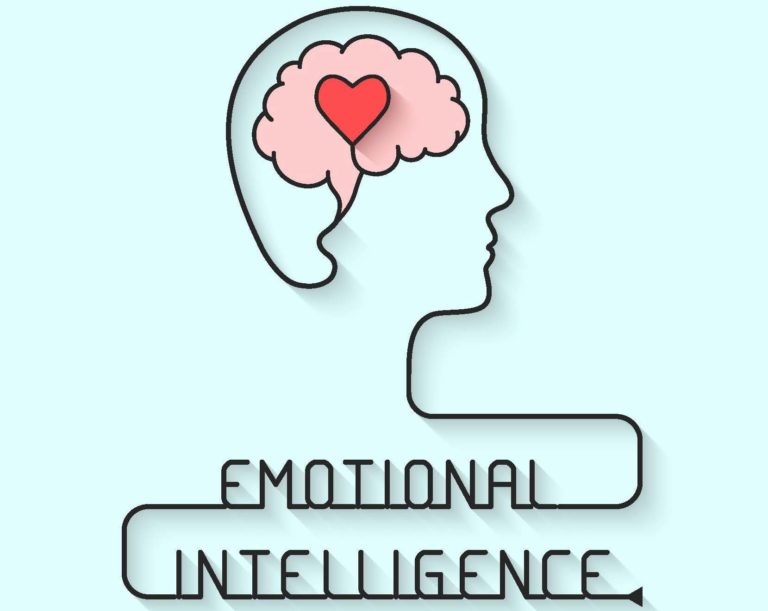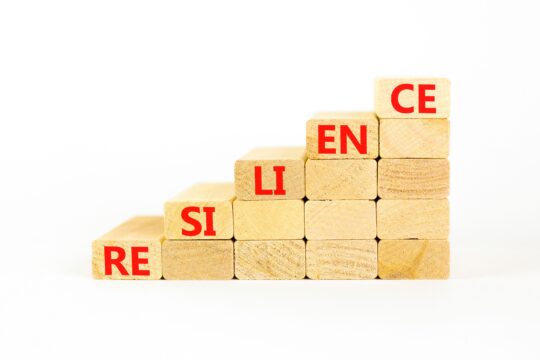Emotional intelligence is essential to becoming a successful person in life, school, and work. Emotional intelligence can be more important in determining positive outcomes of a person than one’s intelligence quotient (or IQ).
What is Emotional Intelligence?
Emotional intelligence (or EI) can be most simply defined as a person’s ability to correctly identify a certain emotion they are feeling, understanding the reasoning why one is feeling that way, and appropriately managing the expression of that emotion.
It also means that a person can correctly identify emotions expressed by others. People with a high level of emotional intelligence are successful leaders. A person who can manage one’s emotions is much more productive than a person who is not capable of such. Emotional intelligence is crucial to developing relationships with others and achieving goals.
Elements of Emotional Intelligence
There are five key elements of emotional intelligence according to Dr. Daniel Goleman (1995): 1) Self-Awareness; 2) Self-Regulation; 3) Motivation; 4) Empathy; and 5) Social Skills. Goleman developed a framework of these elements that define intelligence; and it requires the effective management of all five elements to develop a strong level of emotional intelligence. Let’s take a look at each of these elements of emotional intelligence:
- Self-Awareness – this is the most essential element of emotional intelligence, as it is crucial to developing all other elements of emotional intelligence. Self-awareness is the ability to understand and manage one’s emotions. People who are self aware are also extremely capable of reflecting on their thoughts, words, and actions in honest ways with the goal to truly identify their capabilities and their weaknesses. Therefore, self-awareness takes confidence and authenticity.
- Self-Regulation – the ability to manage your emotions. As mentioned previously, people who are self-aware are able to self regulate. They employ thinking through a situation before reacting impulsively or without weighing the pros and cons.
- Motivation – the ability to stay the course to achieve a goal. A person with emotional intelligence is motivated to complete tasks to achieve a goal.
- Empathy – the ability to identify and recognize the emotional needs of others. It takes someone with a high degree of emotional intelligence to empathize with others. This essential element is crucial to the development of the last element of the emotional intelligence framework.
- Social Skills – the ability to relate to others, communicate effectively, and develop relationships.
Importance of Emotional Intelligence
Emotions are at play every moment of our lives. Emotions can be quite disruptive in a person’s life. Emotions can prevent someone from achieving a task or a goal. Therefore, the ability to identify, understand, and manage one’s emotions is an extremely crucial part of developing deeper learning competencies, which are essential skills to be prepared successfully for life.
Bitter and Loney (2015) describe “deeper learning” as the combination of a deeper understanding of core academic content, the ability to apply that understanding to novel problems and situations, and the development of a range of competencies, including people skills and self-management. Therefore, the better able you are at managing your emotions, the more productive you will become in succeeding in the achievement of academic, work, and life goals.
How to Improve Emotional Intelligence in Your Students
It is important to note that although a person’s IQ is fixed after a certain age, a person can continue to learn emotional intelligence elements and strengthen overall emotional intelligence throughout one’s life. All five elements of the emotional intelligence framework can be taught in your classroom. Here are a few strategies that can be easily incorporated into any lesson, subject, or classroom:
Self-Awareness
To develop self-awareness in your students, ask them to journal daily. Students could be instructed to write about their thoughts and feelings upon arriving at school, before dismissal, and even after each lesson. Journaling will help students practice and develop self-awareness by taking regular account of thoughts and feelings throughout the day. You can have students keep their entries private, ask for share outs at times, or use this type of reflective writing as a writing assignment having students respond to a writing prompt or discussion post. You can encourage students to keep a diary or journal at home and continue the practice outside of the classroom.
Self-Regulation
Self-regulation can be promoted by having students regularly practice mindfulness in the classroom. Have students take breaks to practice calming strategies throughout the day such as deep breathing exercises, visualization practices, yoga poses, and even use of meditation. Self-regulation is about being able to maintain self-control. Students need to know what their calm self feels like so that when anxiety or anger takes over, he or she knows what state of mind they need to return to so that they can maintain self-regulation of emotions.
Motivation
Motivation can be developed by having students regularly practice goal setting. Students should be instructed to set an overall personal goal and academic goal to complete by the end of the school year. Help students understand that monitoring progress along the way is key to staying focused and motivated towards achieving the goal, as well as knowing how close you are at achieving the goal. At the beginning of each grading period, have students create a 9 week strategy of how they will work towards this overall annual goal. Ask the students to make sure they have some measurable way of monitoring their progress of the goal.
Empathy
Empathy can be tricky to teach but not impossible. Helping students learn how to put themselves in another person’s shoes can be a difficult concept to grasp for some students. Start the process by having regular scenarios presented to students. Students must be working in small groups or teams and are presented with a fictitious challenge. Each student plays a role with predetermined dialogue. One person is asking for help or feedback about a problem. Each team member must read their assigned dialogue which consists of a variety of comments ranging from extremely polite constructive feedback to rude and inappropriate feedback. Have the team process each response and discuss how a person might feel when presented with each comment. This exercise is important in helping students develop empathy and override impulsive and judgemental comments.
Social Skills
Essential to developing strong social skills is the development of the abilities to contribute meaningfully toward the goals of a team as well as communicate effectively. Having students work in teams or with partners will help students develop communication and collaboration skills necessary for successful development of relationships. You can structure group activities to include a variety of discussion posts and prompts. You can have specific roles for each team and regularly rotate changing team members in these roles. You can also vary the goals that each team must complete. Structured debates and mock conflicts can help students develop the skills necessary to mediate problems and develop problem-solving strategies.
References:
Goleman, D. (1995). Emotional intelligence: Why it can matter more than IQ. New York: Bantam Books.
Bitter, C., & Loney, E. (2015). Deeper Learning: Improving Student Outcomes for College, Career, and Civic Life. Policy Brief. Education Policy Center at American Institutes for Research.




